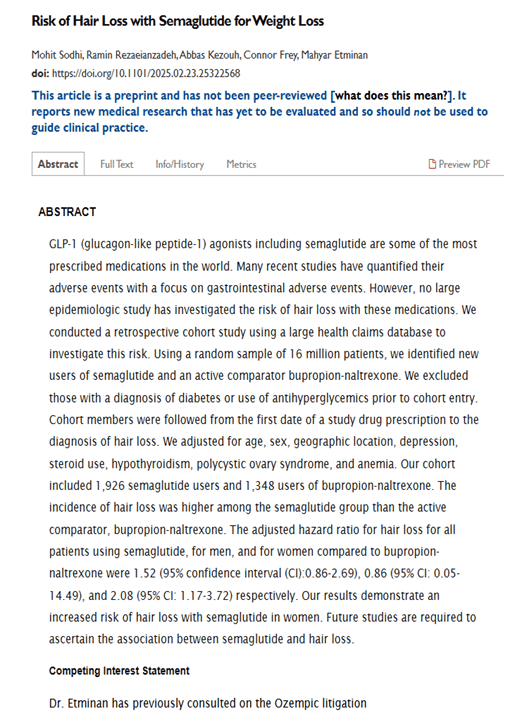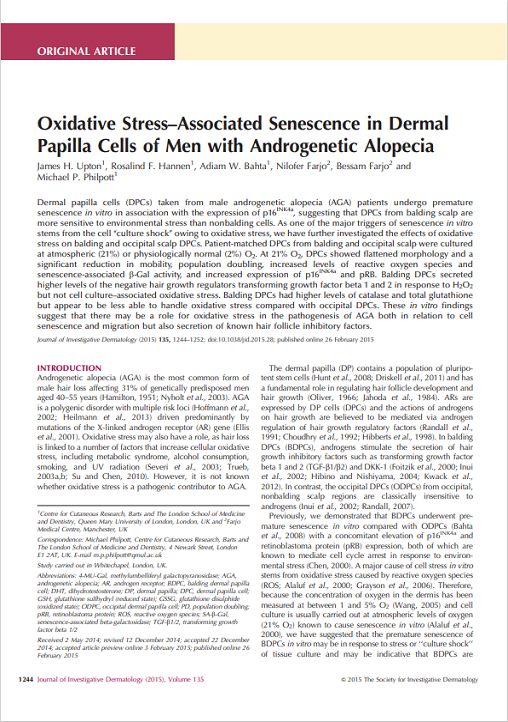
#23 The First Large-Scale Epidemiological Study Investigating the Association Between Semaglutide (Wegovy®) Use and Hair Loss
Mohit Sodhi, Ramin Rezaeianzadeh, Abbas Kezouh, Connor Frey, Mahyar Etminan
This research paper has been made available online as a pre-print and has not yet been formally published in an academic journal. The study is a large-scale retrospective cohort study comparing the GLP-1 receptor agonist semaglutide with bupropion-naltrexone, based on real-world usage for weight loss purposes.
The research team analyzed data from around 3,000 individuals who had no history of diabetes diagnosis or use of blood sugar-lowering medications. The results showed that the incidence of hair loss among semaglutide users was 26.5 cases per 1,000 people—significantly higher than the 11.8 cases per 1,000 among bupropion-naltrexone users. Notably, in female users, the adjusted hazard ratio (HR) was 2.08 (95% CI: 1.17–3.72), indicating that the risk of hair loss more than doubled.
The researchers proposed several potential causes for semaglutide-induced hair loss. First, the physiological stress caused by rapid weight loss may disrupt the hair growth cycle, potentially leading to telogen effluvium, a form of temporary hair loss. Since semaglutide induces faster weight loss than other medications, it may place greater stress on the body, thereby increasing the risk of hair loss. Second, semaglutide’s appetite-suppressing effects could lead to insufficient intake of essential nutrients, particularly protein, a key component of hair, thereby promoting hair loss. Third, other side effects such as nausea or vomiting may reduce food intake or lead to nutrient loss. Finally, some studies have cautiously suggested that semaglutide might influence hormonal balance, potentially triggering long-term hair loss such as androgenetic alopecia.
This study holds significant importance as it statistically supports the association between semaglutide and hair loss using large-scale data. However, the researchers pointed out the inability to ascertain the precise prescription purpose of semaglutide as a limitation of the study, emphasizing the need for further research to clearly elucidate the causal relationship between GLP-1 receptor agonists and hair loss.





